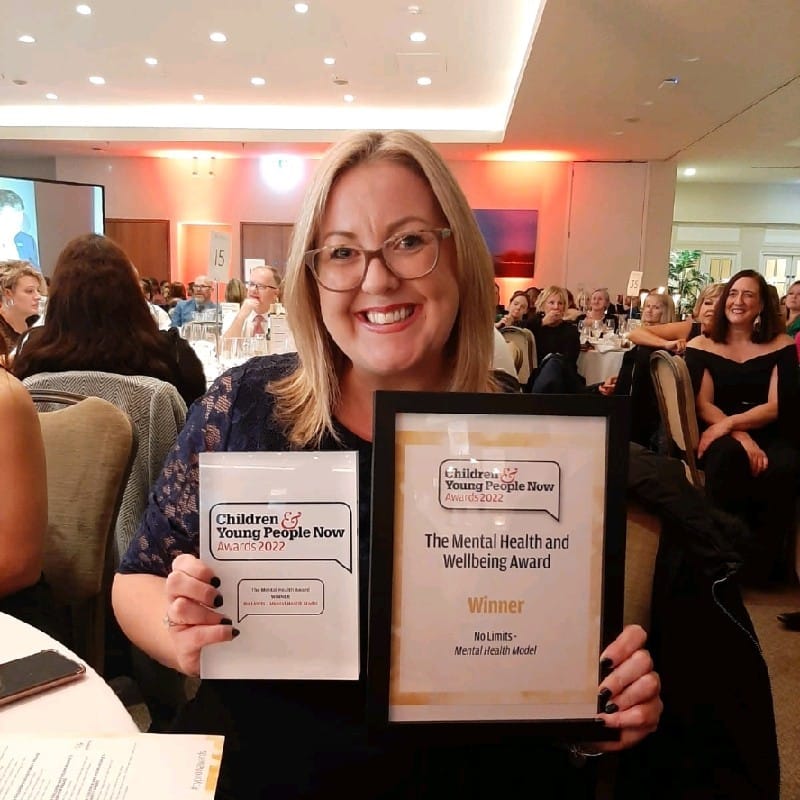CEO Insights with Natalie Webb: Taylor Root UK Trustee Network
A Trustee is an essential part of any charity, providing governance, and bringing experience and support to CEO’s and leadership teams. As part of our interview series for our Trustee Network we thought it would be a great insight to understand the role of Trustee from a CEO’s perspective. So, Taylor Root Director, Asha Morzaria, recently spoke to Natalie Webb, CEO of Southampton-based youth charity, No Limits
What does No Limits as a charity support?

No Limits supports over 7,000 children and young people in Hampshire, Isle of Wight, Southampton and Portsmouth every year, providing information, advice, support and counselling through open access drop-ins and specialist services. Our youth workers and counsellors help with issues including mental health, housing, substance abuse, money, employment, domestic abuse. Many of the young people we support are very vulnerable and experiencing complicated, interlinked challenges. We work with each young person individually, unpicking their issues with them, helping to create positive, sustainable, change in their lives. Our impact is huge, and across No Limits we have an equally huge passion for the work we do and for making a difference to young lives.
What do the Trustees provide to a charity?
Trustees are essential to all charities! Fundamentally, every charity needs a Trustee board to govern. However, the benefits to a charity go well beyond that legal obligation. Trustees bring professionalism, lived experience, skills and a different sort of motivation. Trustees have chosen to give their time to connect with the charity’s cause, and a combination of passion and expertise at a governance level can provide a real benefit to a charity, often essential in helping it to achieve its objectives. Ultimately, they help us to operate more effectively which means that more of the funds raised are used to deliver services. They are also often a great source of support to the CEO and leadership team. My job as CEO feels so all-encompassing handling anything from how emerging government policy is affecting our 5-year strategy to what the alarm code has changed to! Having Trustees who bring more headspace to board meetings is a gem. Lawyers typically bring incisive challenge and combine it with potential solutions. I cherish the diversity of my board and the different perspectives that they bring are invaluable.
How do you use Trustees in an effective way?
I try to build a strong relationship with each Trustee as everyone is different and I need to understand what they want out of it and how much time they can give. Trustees shouldn’t give all their energy to each topic; we have a tremendous amount going on at any one time within the charity and I work with the Trustees as a team. So, I’ll try to build on a Trustee’s energy and skillset for topics that we’re handling. It’s particularly valuable when we’re undertaking something that is completely new to us. We have a Trustee who is Company Secretary for a developer and, of course, their company secretarial skillset helps us regularly when we’re thinking about our governance structures. But they’ve also been specifically engaged recently in a building project that we have underway as they’re used to that sector and the professions involved. Each Trustee contributes to the meetings, but often they have something to give on other projects.
Thinking about lawyers specifically, can you share some examples of where a Trustee lawyer has been valuable to the charity?
The obvious example is where a lawyer’s skillset gives them first-hand experience of handling something new to us as a charity. Recently that’s included a supplier dispute that escalated beyond our own ability to handle it and professionalising an outsourcing relationship with another charity that we’re closely connected with. A lawyer Trustee can help to guide us through the steps of the process and, if necessary, help us instruct a law firm and manage costs. Other times it’s as simple as giving us confidence in our approach. The supplier dispute we recently faced is a great example where we didn’t feel that we’d done anything wrong but were being aggressively pursued. Chatting it through with them gave us the confidence to hold our position and stem the drain it was causing on staff time. It ultimately saved thousands of pounds in valuable charitable resource and avoided the unquantifiable disruption it was causing. When the supplier knew that a lawyer Trustee was involved, their behaviour towards us changed. The less obvious example is how the analytical and detailed approach of a lawyer can also support us in something unexpected, such as a safeguarding incident or data loss event. Lawyers often bring a calmness under pressure and the ability to incisively cut through to the key issues. This clarity of thinking is particularly helpful and essential to a diversified board.
How do you identify what type of Trustee you need?
It’s important to have a balance of skills, experience and perspective, just like a company board. Accordingly, we look at what we have around the table already and where our skills and gaps are so that we bridge those. So, as well as the passion and time, we want someone who will bring something that’s missing and we proactively seek skillsets and experience that will enhance our board. Passion for the cause is also crucial. Once a potential Trustee knows that they want to give up their time for the cause, it’s important for them to be honest with themselves about whether they can give up enough of their time to reasonably engage. Success requires both!
What piece of advice would you give to lawyers who are interested in becoming a charity Trustee?
Firstly, connect to other Trustees that are in your network or others that work at charities. The network of Trustees and staff remain the most fruitful in spreading the work and a lot of our recruitment comes from that. Many charities will be keen to hear from lawyers. Be clear on the cause that connects with you and then research charities, looking beyond the top-of-mind charities. There are about 170,000 charities in the UK and every one of them is required to have Trustees. So, look at charities local to you and causes that you’re passionate about. Then be proactive and approach the charity; it’s about ‘the fit’ and if your passion is matched by a need that they have, it will be a great opportunity for you to really contribute to something that you’re passionate about.
What support would new Trustees typically be provided with by a charity?
The Charity Commission and National Council for Voluntary Organisation (NCVO) both have a lot of helpful resources on their websites for people considering becoming a Trustee. When we appoint a new Trustee, we will buddy them up with an existing Trustee and provide them with training to help them settle into the role.
If you are interested in a Trustee role or are looking to hire a Trustee position, please get in touch with Asha Morzaria to find out more.
If you would like to join our Trustee network, find out more here.
We want to reiterate that this is not a paid service and forms part of our referral programme, so please do not hesitate to get in touch.




